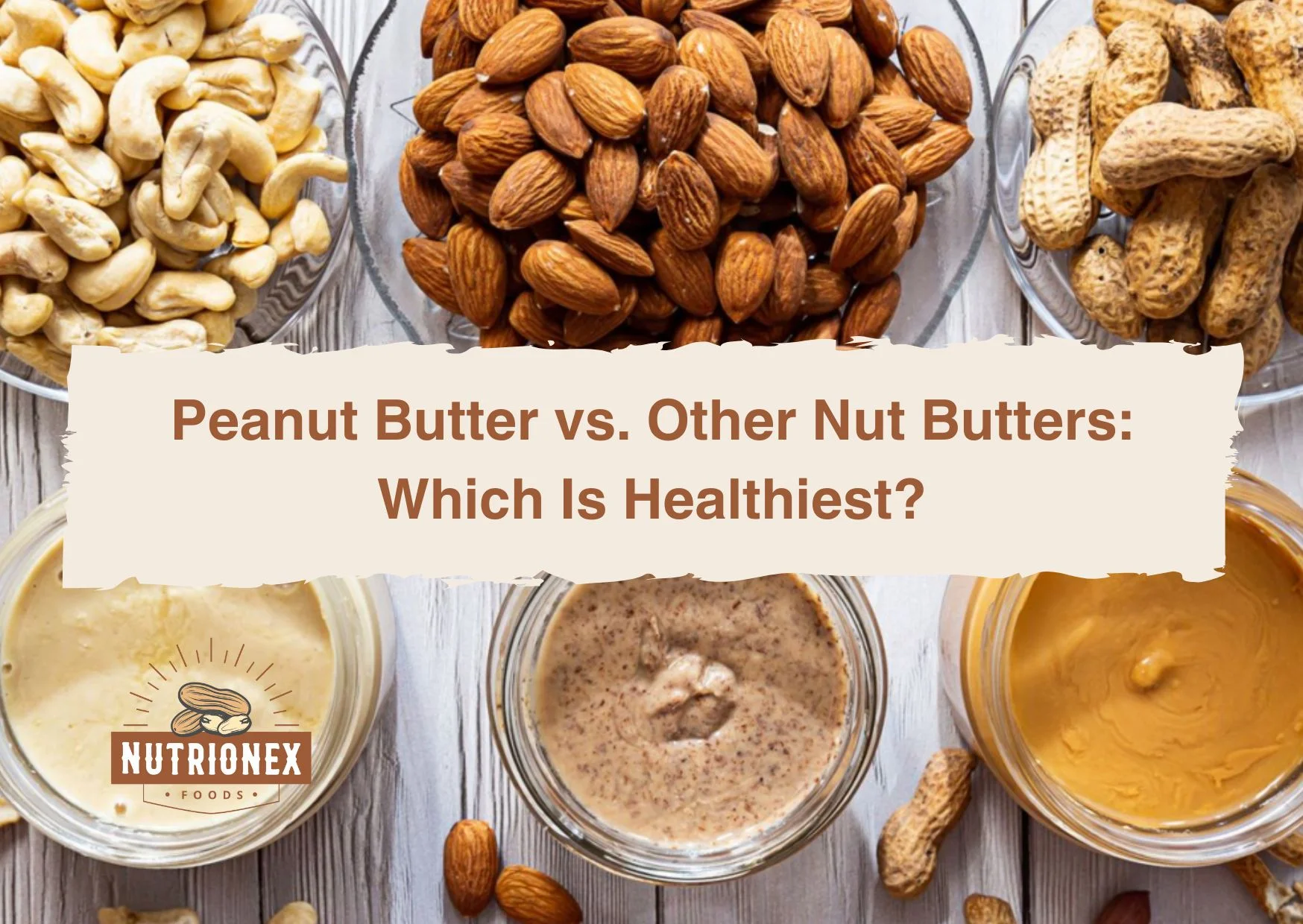
Peanut Butter Vs. Other Nut Butters: Which Is Healthiest?
Nut butters have become a staple in most households, for adding flavor and versatility and boosting nutrition in many recipes. Given the popular versions of these nut butters, classic peanut butter usually dominates the market, but other nut butters-such as almond, cashew, and walnut-butters have been getting serious attention. With the choices on hand, it is very important to know their health profile to make a good choice. Let's get into the nutritional facts, benefits, and considerations needed to determine which is the healthiest.
Nut Butters Face-Off! Which Spread is the Healthiest?
The Peanut Butter Classic Choice
It is a universally tested-and-true favorite: peanut butter, made from ground peanuts, rich in protein, and containing essential vitamins and minerals. But is it the healthiest on the shelf?
Nutritional Breakdown
The peanut butter is packed with protein. Per serving size, about 2 tablespoons contain around 8 grams of protein, which will give a huge boost to muscle repair and building. Moreover, it is also a great source of healthy fats that improve heart health. However, this may be high in calories, so just a little will do.
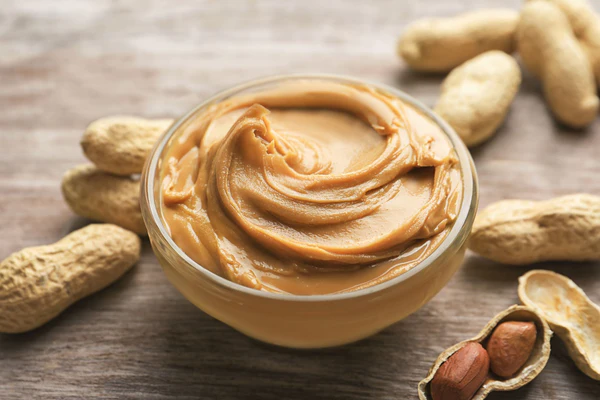
Health Benefits
Peanuts are rich in monounsaturated fats that help lower bad cholesterol levels. They also contain magnesium, which is very essential to maintain bone health. Peanut butter can be a satisfying snack providing a lasting energy reservoir, hence is widely used by both athletes and busy individuals.
Things to Watch Out For
Added sugar, hydrogenated oils, and preservatives in some brands of peanut butter can put a ding in some of its benefits. Always check the label for natural options that contain only peanuts and a little salt. Peanut butter is more reasonable than other nut butters and thus can be more accessible to most households.
Affordability
Peanut butter is more cost-effective than other nut butters, making it accessible to most households.
| Nutrients | Amount (per 2 tbsp) |
| Protein | 7 grams |
| Calories | 180-200 kcal |
| Fiber | 2 g |
| Carbohydrates | 6 g |
| Total Fat | 16 g |
| Healthy Fats | 13 g |
| Key Nutrients | Vitamin E, Magnesium, Potassium, Calcium, vitamins B6 |
| Vitamin E | 4-5 mg (25% DV) |
| Magnesium | 49 mg (12% DV) |
| Calcium | 18 mg |
| Monounsaturated Fats | 8-9 g |
| Polyunsaturated Fats | 4-5 g |
| Omega-3 Fatty Acids | 0.1-0.2 g |
Almond Butter Allure
Almond butter has grown in popularity not only for its great taste but also as a healthier alternative to peanut butter. The rich, nutty flavor and creamy texture often make it well-received.
Nutritional Breakdown
It contains a lot of healthy fats and fiber, and hence, is quite filling. There is about 7 grams of protein per 2-tablespoon serving-slightly less than in peanut butter. It is, however, high in vitamin E, an antioxidant that protects cells from damage.
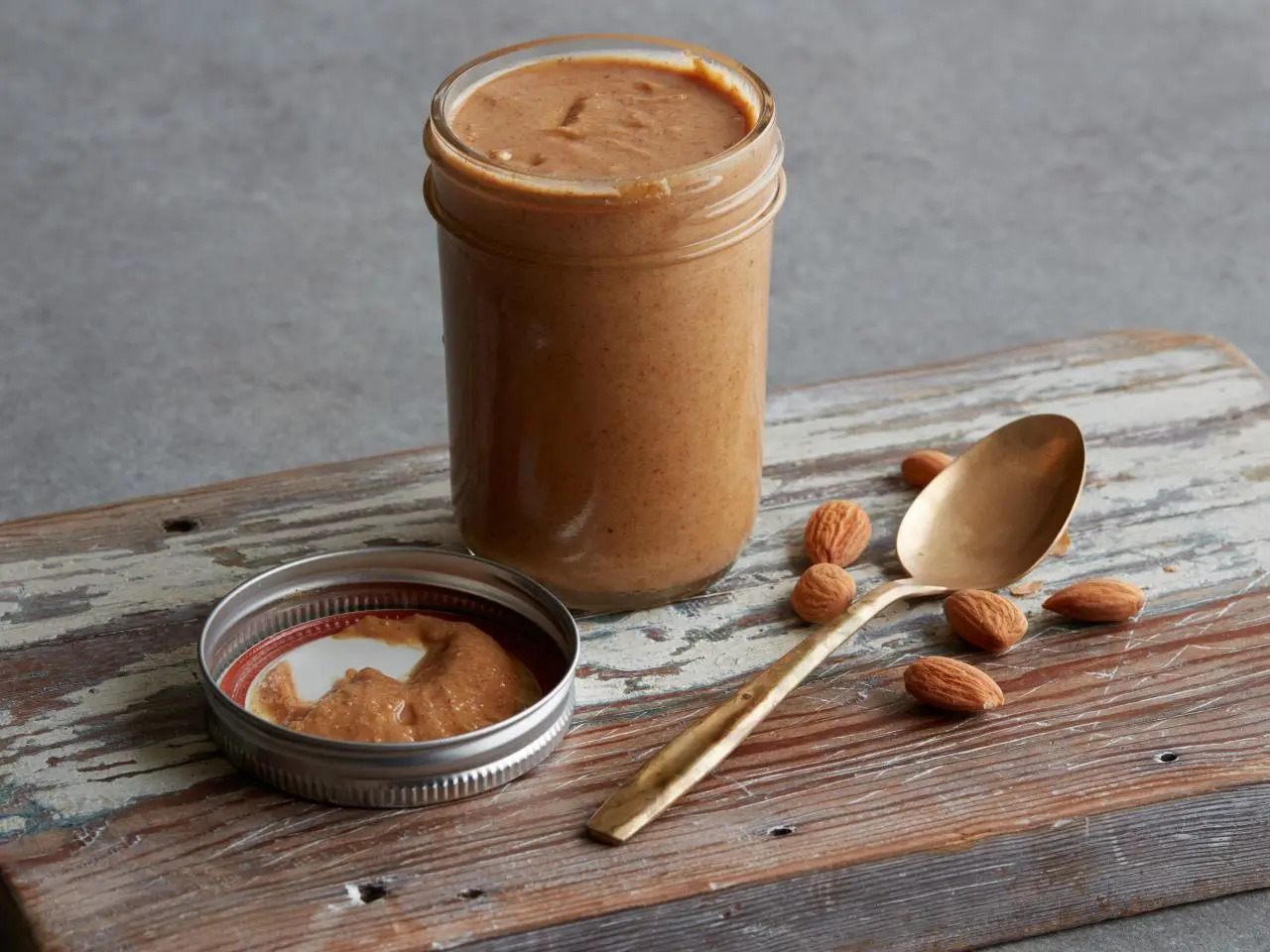
Health Benefits
The high content of vitamin E in almond butter keeps the skin healthy and reduces inflammation. It is also a source of calcium, which is important for the strength of one's bones. Lactose intolerants use this nut butter as an alternative way to increase their calcium intake.
Things to Watch Out For
Almond butter usually comes in a bit pricier than peanut butter. It can also be a bit thicker and stickier, which not everyone likes. As with peanut butter, choose brands that have as few added ingredients as possible.
Taste and Texture
Creamy and slightly nutty, it pairs well with both sweet and savory dishes.
| Nutrients | Amount (per 2 tbsp) |
| Protein | 7 grams |
| Calories | 196 calories |
| Fiber | 3.5 grams |
| Carbohydrates | 6 g |
| Total Fat | 18 g |
| Healthy Fats | 12 g |
| Key Nutrients | Vitamin E, Magnesium, Potassium, Calcium, vitamins B6 |
| Vitamin E | 7.3 mg (25% DV) |
| Magnesium | 70 mg (12% DV) |
| Calcium | 50 mg |
| Monounsaturated Fats | 10 g |
| Polyunsaturated Fats | 1.5 g |
| Omega-3 Fatty Acids | 80 g |
The Allure of Cashew Butter
Cashew butter is noted for its creamy sweetness added with a smooth texture, which makes it enjoyable in many savory and sweet dishes.
Nutritional Breakdown
In one serving, cashew butter contains approximately 5 grams of protein per a 2-tablespoon serving. Although cashew butter has low protein compared to other nut butters, it contains a good deal of healthy fat and iron, considered an essential nutrient that helps carry oxygen in the blood.
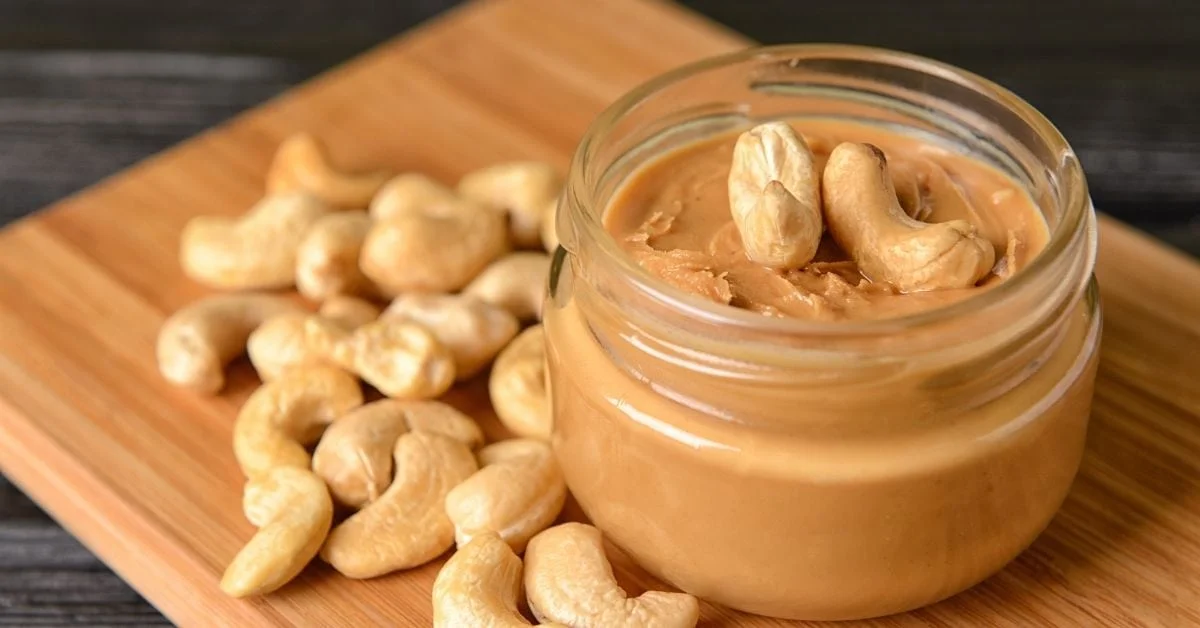
Health Benefits
Cashews contain copper, which helps in maintaining a healthy immune system and production of collagen. The iron content in cashew butter can prevent anemia, especially in patients who are under some kind of diet constraint.
Things to Watch Out For
Cashew nut butter falls into the rather high category of calorie food, so portion control is important. It may also contain added oils and sugars, so head to the label for pure varieties.
Ideal Uses
Its smooth texture makes it perfect for desserts and creamy sauces.
Hazelnut Spread Delight
When one thinks of the term hazelnut spread, Nutella might be the first thing that comes to mind. Not all hazelnut butters are created equal.
Nutritional Breakdown
Hazelnut butter is typically around 4 grams of protein in a 2-tablespoon serving. It is rich in healthy fats and also carries important vitamins like B6, which is important for brain health.
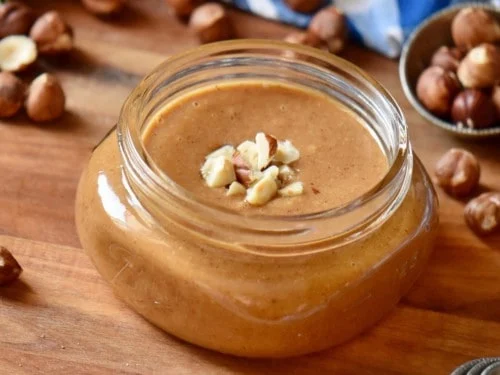
Health Benefits
Hazelnuts contain heart-healthy fats that help improve cholesterol levels. Vitamin B6 is involved in brain function and aids in the synthesis of neurotransmitters in hazelnut butter.
Things to Watch Out For
Most hazelnut spreads contain a lot of sugar and cocoa, which can make a great healthy snack into a sweet treat. In their pure form, opt for hazelnut butter to reap all the health benefits.
Taste and Usage
The rich nutty flavor of hazelnut butter is applied to many desserts and is often combined with chocolate.
| Nutrients | Amount (per 2 tbsp) |
| Protein | 2 grams |
| Calories | 190 calories |
| Fiber | 2.5 grams |
| Carbohydrates | 6 g |
| Total Fat | 18 g |
| Healthy Fats | 14 g |
| Key Nutrients | Vitamin E, Magnesium, Calcium, Folate, Manganese |
| Vitamin E | 4.3 mg (25% DV) |
| Magnesium | 49 mg (12% DV) |
| Calcium | 31 mg |
| Monounsaturated Fats | 10 g |
| Polyunsaturated Fat | 3 g |
| Omega-3 Fatty Acids | 90 g |
How to Choose the Best Nut Butter for Your Needs
-
Reading Labels: Always check the content for added sugars, oils, and preservatives. The fewer the ingredients, the healthier the product.
-
Organic vs. Conventional Options: Organic nut butters are free of pesticides and also tend to contain fewer additives; hence, they are much healthier.
-
Texture Preferences: Smooth or crunchy? It's totally up to personal preference because it makes little or no difference nutritionally.
Choosing the Right Nut Butter for Your Diet
Nut butters taste great and are so packed with nutrition that one would wish to include them in the diet. With these options available, it can become confusing on which variety suits one's health goals best. Indeed, different nut butter varieties possess their own unique nutritional profiles, from protein-enriched peanut butter to heart-healthy almond and creamy cashew butters. Here's a guide to help you pick the best nut butter for your diet, whether you're looking for a boost of protein, a way to keep your heart healthy, or you just love a tasty treat.
1. For Protein Boost: Peanut Butter
If you’re looking to increase your protein intake, peanut butter is an excellent choice. It’s packed with protein, making it a great option for athletes, active individuals, or anyone looking to support muscle growth and repair. Peanut butter is also rich in healthy fats, making it a filling and satisfying spread.
-
Best for: Muscle building, energy, and repletion.
-
Nutritional Highlights: 8-10g of protein per 2 tbsp, heart-healthy monounsaturated fats.
-
Tip: Opt for natural peanut butter, containing no added sugar or hydrogenated oils, which is the healthier alternative.
2. For Heart Health: Almond Butter
Almond butter is full of heart-healthy fats, especially monounsaturated fats, which help lower levels of bad cholesterol and keep the heart healthy. It is also rich in antioxidants, including vitamin E, which promotes skin health and protects against oxidative stress.
-
Best for: Supporting heart health and skin wellness.
-
Nutritional Highlights: High in vitamin E, magnesium, and antioxidants; lower in saturated fat.
-
Tip: One may prefer unsweetened almond butter to avoid the extra sugars and consume the nutty creaminess.

3. For Lower Fat: Cashew Butter
Cashew butter is creamy, smooth, and a little sweeter compared to other nut butters. Though less fattening than either peanut or almond butter, it is a good source of protein and also some important minerals like iron, magnesium, and zinc. In the case of cashew butter, it will be a fabulous choice because one gets a satisfying spread without going overboard on fats.
-
Best for: A creamy, lighter alternative with a lesser fat content.
-
Nutritional Highlights: 4-5g of protein per 2 tbsp, lower in fat, rich in minerals such as iron and magnesium.
-
Tip: excellent in smoothies, baked goods, or on toast for a light and yet satiating snack
4. For Sweet Indulgence: Hazelnut Butter
Its nature is sweet and truly ideal for a sweet tooth individual wanting to indulge in healthy delight. It is also full of healthy fats and antioxidants of which the most commonly valued one is Vitamin E; this contributes to good skin health and reduces body organ inflammation. Hazelnut butter has generally been used in dessert recipes or combined with chocolate as an indulgence.
-
Best for: A natural sweet spread for desserts and snacks.
-
Nutritional Highlights: High in antioxidants, healthy fats, and vitamin E, lower in protein.
-
Tip: Great to add into smoothies or use to fill energy bars.
How to Choose the Right Nut Butter for Your Diet
-
If you’re looking to build muscle: Choose peanut butter for its high protein content.
-
If your focus is on heart health, then almond butter is a good choice since it contains monounsaturated fats and antioxidants.
-
Cashew nut butter can be creamier and has less fat if a lighter alternative is preferred.
-
Sweet craving: One would enjoy the naturally sweet flavor of hazelnut butter because of its nutrient-dense profile.
-
Variety's the spice of life: Opt for mixed nut butters to get the different nuts' benefits in one spread.
Factors to Consider When Choosing the Healthiest Nut Butter
-
Protein Content: In the race of protein content, peanut butter and almond butter stand tall. Therefore, both are excellent in effecting muscle building and repair.
-
Nut Butter Composition: Almond and walnut butters are higher in unsaturated fats, which are considered protective against heart disease. Peanut butter contains a relatively balanced fat profile but is higher in saturated fat compared with either almond or walnut peanut butter.
-
Added Ingredients: Always check the labels. Most nut butters in their processed stage contain added sugars, salts, and oils that can reduce their health benefits. One should always go for minimal ingredients.
-
Caloric Density: Nut butters are calorie-dense foods; hence, small portions pack a big energy wallop. Pay attention to serving sizes to avoid overindulging
Versatility in the Kitchen
-
Peanut Butter: A classic for sandwiches, baking, smoothies, and sauces: versatile enough for sweet and savory dishes alike.
-
Almond Butter: Perfect for paleo and keto-friendly recipes, add rich flavor to baked goods and smoothies with almond butter.
-
Other Nut Butter: Cashew butter is creamy and works great as a base for sauces, while walnut and sunflower seed butters add a serious depth to dressings and spreads.
In conclusion
While it is a delicious and healthy choice, other nut butters, like almond, cashew, and walnut butter, can offer unique health benefits that better suit your dietary needs. Peanut butter has the highest protein and healthy fat content, but it tends to be high in omega-6 fatty acids, so it would be good to balance those with some omega-3s. Almond butter has more fiber, vitamin E, and antioxidants, while cashew nut butter is higher in magnesium and iron. Walnut butter is unique because of its high omega-3 content. Ultimately, the healthiest choice will depend on your personal health goals and preferences, but all nut butters can be part of a healthy, balanced diet when consumed in moderation.
